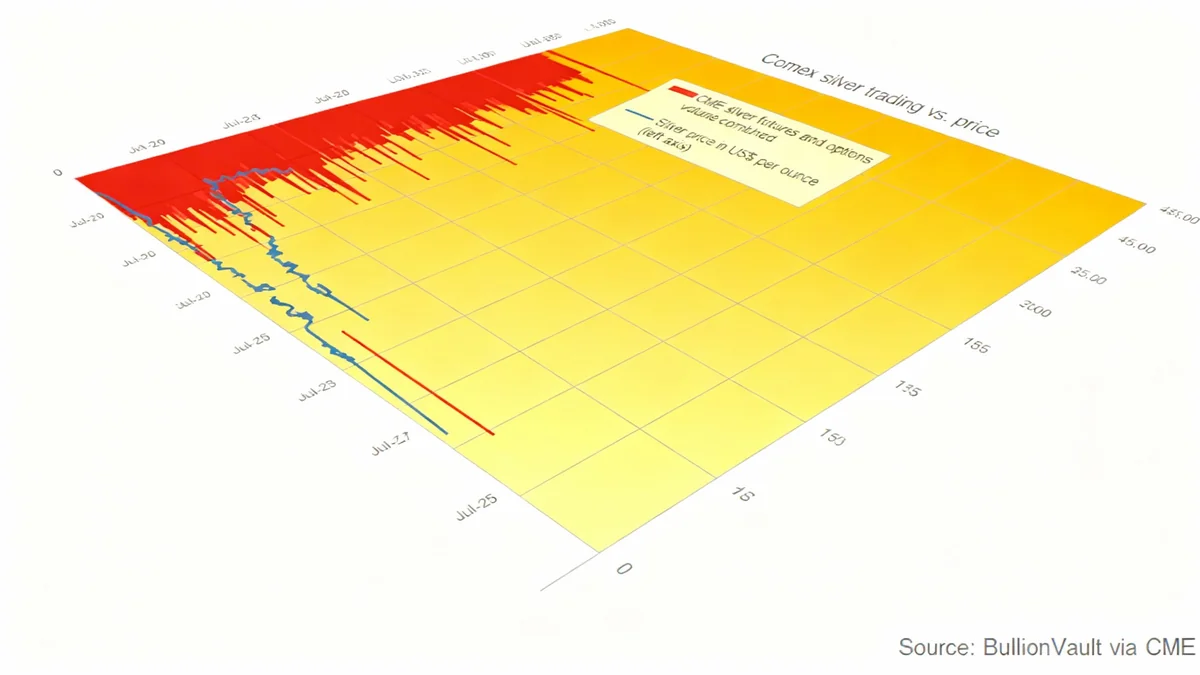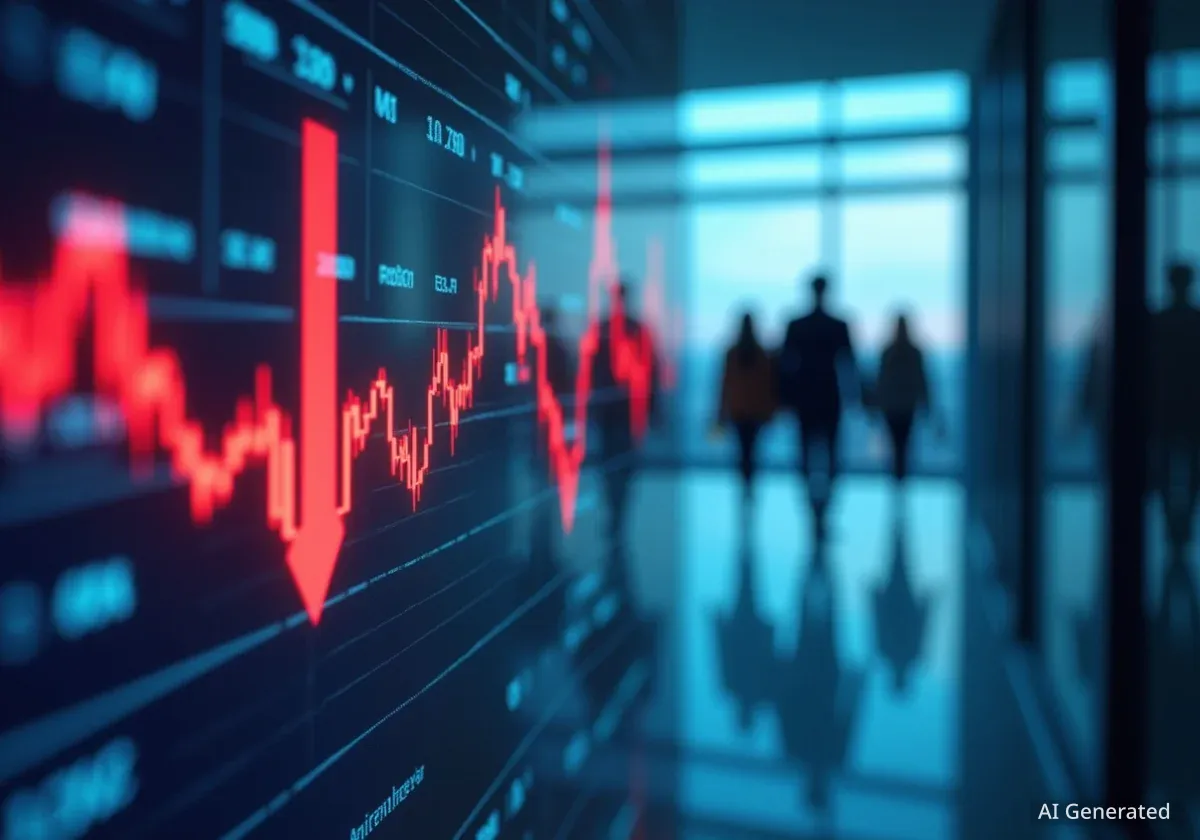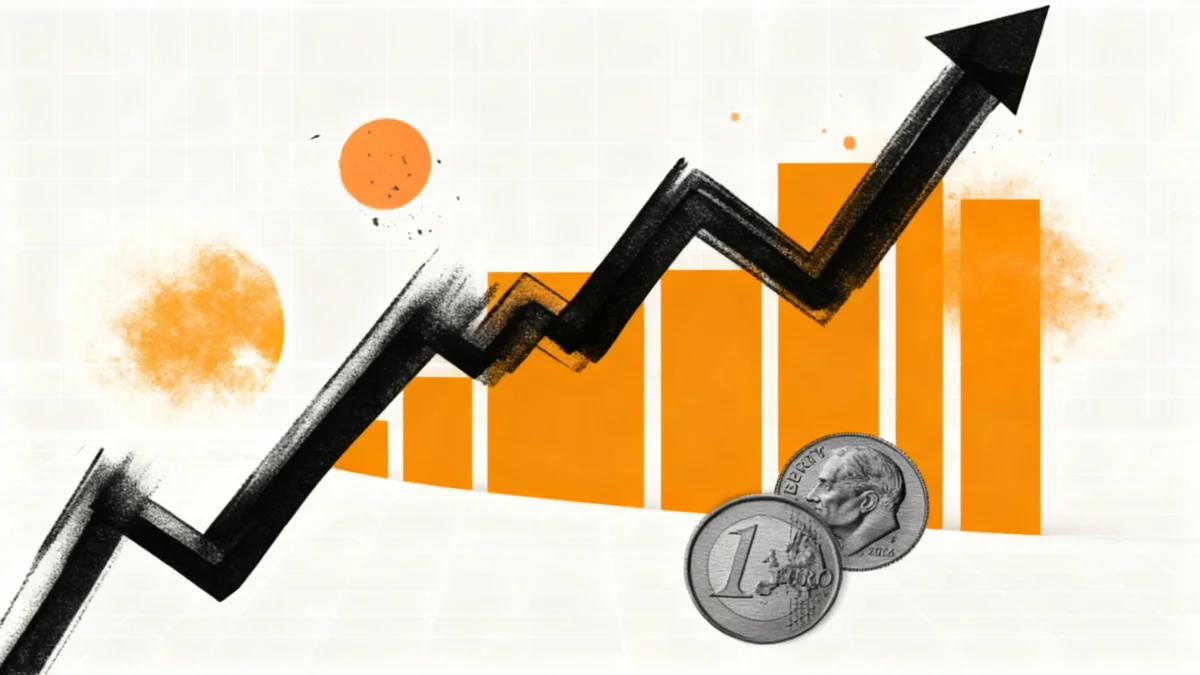JPMorgan Chase CEO Jamie Dimon recently voiced significant apprehension regarding the current state of the stock market. He stated he is "far more worried than others" about potential declines, citing broader economic concerns and global tensions.
Dimon's remarks, made during a BBC interview, suggest that the market could face a correction within the next six months to two years. A correction typically involves a 20 percent drop from a market's peak value.
Key Takeaways
- Jamie Dimon is "far more worried" than others about a stock market decline.
- A market correction of 20 percent could occur within 6 months to 2 years.
- Concerns stem from a weakening job market, rising inflation, and global geopolitical tensions.
- Despite worries, major U.S. indexes recently hit record highs, driven by AI investments.
- Dimon also commented on potential future political aspirations.
Market Resilience Amid Economic Headwinds
Despite Dimon's warnings, all three major U.S. stock indexes have recovered from earlier declines this year. These earlier drops were largely influenced by shifting trade policies under the previous administration and ongoing inflation concerns.
Investment in artificial intelligence (AI) has significantly boosted the stock market. The S&P 500 index and Nasdaq both achieved new record highs recently, even as worries about the broader U.S. economy grew.
Market Snapshot
- The S&P 500 and Nasdaq recently set new record highs.
- Average job growth in the U.S. this year is 29,000 jobs per month.
- This pace is approximately one-quarter of what is needed to prevent unemployment from rising.
- Annual inflation has climbed back to 3 percent.
Stagflation Fears and Global Instability
The U.S. economy is currently experiencing a combination of a slowing job market and persistent inflation. The nation has added an average of only 29,000 jobs per month this year. This figure is considerably lower than the monthly pace required to keep the unemployment rate stable.
Simultaneously, annual inflation has risen to 3 percent. This dual challenge of weakening job growth and increasing prices has led to fears of stagflation. Stagflation is an economic condition where inflation worsens even as economic growth stagnates.
"People talk about stockpiling things like crypto, I always say we should be stockpiling bullets, guns and bombs. The world’s a much more dangerous place, and I’d rather have safety than not."
— Jamie Dimon, CEO of JPMorgan Chase
Beyond domestic economic issues, Dimon also highlighted profound concerns about escalating global tensions. He specifically pointed to the strained relationship between the U.S. and China as a major source of instability. These geopolitical risks contribute to his overall cautious outlook.
Understanding a Market Correction
A market correction is generally defined as a decline of 10 percent or more in the price of a security, index, or commodity from its most recent peak. When Dimon refers to a 20 percent decline, he is indicating a more severe downturn, often signaling a shift in market sentiment or underlying economic conditions.
Dimon's Influence and Future Political Role
As the CEO of JPMorgan Chase, the largest bank in the United States, Jamie Dimon holds significant influence in the financial world. His frequent comments on economic and global matters often draw considerable attention and fuel political speculation.
For years, Dimon has been mentioned as a potential presidential candidate or a future Treasury secretary. His strong opinions and leadership position make him a recurring topic in political discussions.
When asked about a future in public office during the BBC interview, Dimon stated his immediate focus is ensuring JPMorgan Chase remains a "healthy and vibrant company." However, he did not rule out a future political run.
"If you gave me the presidency, I’d take it. I think I’d do a good job," Dimon remarked. This statement underscores his confidence and willingness to consider high-level public service.
The Broader Economic Landscape
The current economic environment presents a complex picture. On one hand, technological advancements, particularly in AI, continue to drive significant market gains. This innovation creates new opportunities and investor enthusiasm.
On the other hand, traditional economic indicators show signs of stress. Low job creation and persistent inflation pressure household budgets and business profitability. These conflicting signals make forecasting market movements challenging.
Investors are carefully watching central bank actions, government policy decisions, and global geopolitical events. These factors will likely play a crucial role in shaping market performance over the coming months and years.





